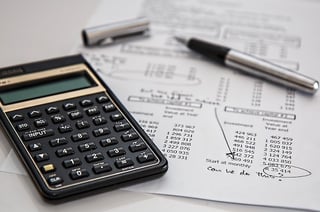 Many people I speak with are interested in finding out what debts are not dischargeable in a bankruptcy. Meaning what debts will still remain after a bankruptcy. Tax debt is the most tricky debt to deal with in bankruptcy because there are so many rules in place that must be followed in order to determine whether tax debt can be discharged in a chapter 7 bankruptcy.
Many people I speak with are interested in finding out what debts are not dischargeable in a bankruptcy. Meaning what debts will still remain after a bankruptcy. Tax debt is the most tricky debt to deal with in bankruptcy because there are so many rules in place that must be followed in order to determine whether tax debt can be discharged in a chapter 7 bankruptcy.
In a chapter 7 tax debt is discharged only under some very specific conditions. The rules are:
1.Your tax debt is from personal income taxes. You can’t discharge taxes from payroll or corporate taxes,
2. The tax debt is at least three years old. The tax debt must have been from taxes that were due at least three years before you filed bankruptcy.
3. You filed all your tax returns for every year in the past four years. The tax debt you are trying to discharge must have been filed in a return that was completed at least two years before you file a bankruptcy.
4. The 240-day rule. The IRS has assessed the debt at least 240 days before you file a bankruptcy. Meaning the IRS has had a chance to collect on the debt for at least 240 days.
5. No fraud determination. You can not discharge taxes that you filed a fraudulent tax return on or some other attempt to evade tax collection.
If a tax lien has already been entered against
How do you determine what debt is dischargeable in a chapter 7 bankruptcy?
The first thing you want to get is IRS tax transcripts for every year in which you are trying to wipe out debt. These tax transcripts are a window into when you filed your
IRS tax transcripts can be downloaded from the IRS’s website for free for more recent tax years. For older tax transcripts you may need to have the IRS
If you are interested in meeting with an attorney to go over discharging tax debt the first step would be to come prepared with your tax transcripts so we can thoroughly analyze your IRS tax debt and determine if a chapter 7 bankruptcy is the right option.
Chapter 13 as an Alternative Option
If we determine your debt doesn’t fit all the above rules, with the most common being the debt is
Instead, you will have the chapter 13 trustee pay your tax debt directly. It is up to the IRS to fill out the proper paperwork to show what debt needs to be paid in full in the chapter 13 bankruptcy and what debt does not, meaning, in a chapter 13 you may still be able to wipe out some tax debt without payment in full. This is priority vs non-priority tax debt. At the end of your three-year plan or your five-year plan, you will be tax debt free.
Whether you are able to wipe out your tax debt in a chapter 7 bankruptcy or have to do payments on the tax debt in a chapter 13 bankruptcy, you will most likely be in much better shape than trying to pay the tax debt directly with the IRS. Especially if it is any significant amount, and that is because the interest and penalties charged are so high.



